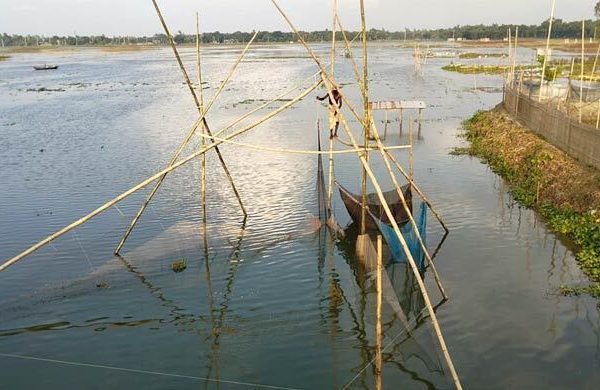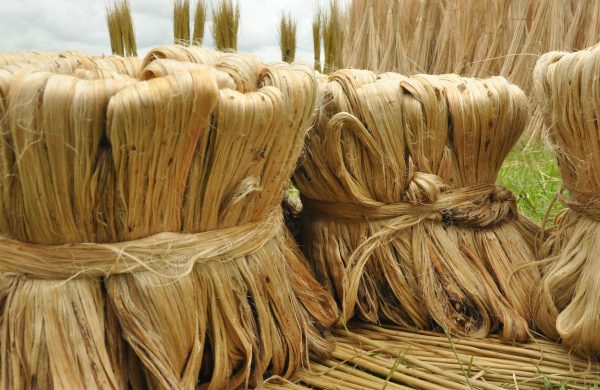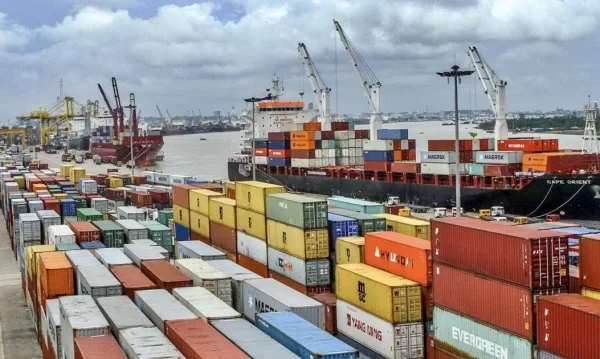Vanishing waters of Chalan Beel : A looming fish crisis
- Update Time : Saturday, November 23, 2024

Pabna Correspondent
Once teeming with life, Chalan Beel —the largest freshwater wetland in northern Bangladesh—is facing a stark decline in its fish population. Local fishermen, who depend on this ecosystem for their livelihood, are now grappling with diminishing fish stocks, largely attributed to water shortages, environmental degradation, and human encroachment.
A DRYING LEGACY
Historically, Chalan Beel was a sanctuary for indigenous fish species and a source of sustenance for thousands of fishing families. However, the wetland’s footprint has dramatically shrunk due to encroachment, pollution, and poor water management. Seasonal monsoon waters that once nourished the ecosystem now remain for only a fraction of the time they used to, disrupting fish breeding cycles.
According to the Fisheries Department, fishermen harvested 4,085 tonnes of fish from Chalan Beel in 2023. This year, however, the outlook is grim. Insufficient water retention during the monsoon has severely impacted fish breeding, and production is expected to decline significantly.
Phanindranath Halder, a fisherman from Chinabhatkur village, laments the changes. “Ten years ago, water stayed in the bil for six months, and we could catch fish year-round. Now, there’s water for barely two months, and many fish species, like Chanda and Pabda, have vanished,” he said. His daily earnings from fishing, once Tk 2,000- Tk 3,000, have plummeted to under Tk 1,000.
ENCROACHMENT AND MISMANAGEMENT
The Chalan Beel spans parts of Pabna, Sirajganj, and Natore, encompassing 39 smaller wetlands, 16 rivers, and 32 canals. However, poor waterway maintenance and unregulated human activity have taken a toll. The Baral River, for example, has been rendered “dead” due to siltation and neglect, while infrastructure projects like the Banpara-Hatikumrul highway have further disrupted water flow and the region’s ecological balance.
Mizanur Rahman, president of the Chalan Beel Rescue Movement, points to indiscriminate pond digging and pesticide use as major culprits. “Not only are fish disappearing, but frogs, snails, and crabs are also struggling to survive. Without urgent action, the entire ecosystem will collapse,” he warned.
AN URGENT CALL FOR RESTORATION
Environmental experts echo these concerns. Dr Nazmul Hossain of Pabna University of Science and Technology emphasises the need for immediate intervention. “The lack of excavation and water flow maintenance has destroyed natural fish breeding grounds. The government must address these issues to restore Chalan Beel ’s ecosystem,” he said.
Fishing communities are also calling for stricter regulation to prevent the overharvesting of fish, particularly during breeding seasons. Senior Fisheries Officer Md Abdul Matin notes that many fish fry are harvested prematurely due to inadequate oversight, further depleting stocks.
A SHARED RESPONSIBILITY
The crisis in Chalan Beel is not just an environmental concern but a socio-economic one. For thousands of families who depend on fishing for their livelihood, the stakes are high. Addressing the issue will require a coordinated effort involving government agencies, local communities, and environmental activists.
By implementing sustainable water management, preventing encroachment, and enforcing stricter fishing regulations, Chalan Beel can be restored to its former glory. Without such measures, the wetland risks becoming a memory, and with it, the livelihoods and biodiversity it once supported.
















